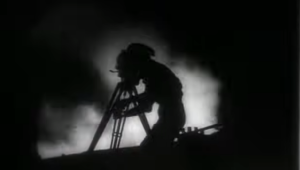If they would simply be proactive it could serve everyone’s best interest. The problem is they try to stop everything, then when it starts happening anyway they villianize it, and finally, when they admit they can’t stop it, they try to find a way to monetize it. If they would open their eyes and get out in front of the technology, they might actually find a way to please everyone.
Fighting the Last War

The same could be said of the record and movie industries. They are still fighting old battles, and occasionally, losing. Until recently, it was staunchly illegal in the U.K. to rip a CD or DVD. I can hardly imagine how many Brits lay awake at night wondering if the music police would come crashing through their front doors searching for SD cards.
But after years of legislative maneuvering, the content providers suffered a defeat. People can copy CDs for personal use. To make sure that everyone is still properly confused, it’s now also legal to copy a DVD, but the copy protection on discs still legally protects it. In the words of the British Intellectual Property Office, “If copy protection is too restrictive, you may raise a complaint with the Secretary of State.” Huh?
Our situation is similar. Although it still somehow seems “wrong,” we can buy a CD, copy the file, and keep the disc as backup. However, according to the Digital Millennium Copyright Act, it is unlawful to circumvent the DRM (Digital Rights Management) on a DVD or Blu-ray Disc. Copying is a no-no. The bigger question is, why are we still debating this? In this era of downloading, physical formats are vanishing, but the lobbying and lawyering goes on. That’s because the record and movie industries are still fighting the last war.
And that war feels like an Orwellian perpetual war. Younger readers will be astounded, and older readers will chuckle, to be reminded of CBS Copycode. To prevent copying (by DAT recorders), Sen. Al Gore and Rep. Henry Waxman sponsored the Digital Audio Recorder Copyright Act of 1987; it would have required DAT recorders to incorporate CBS Copycode. LPs, cassettes, and CDs would have been mastered with a 250-hertzwide notch centered at 3,840 Hz; DAT recorders would detect it and deny copying.
Fortunately, the National Bureau of Standards showed that the notch plainly and audibly degraded music quality and also, by the way, the system didn’t work well at preventing copying. The bill died, but instead other anti-copying measures were mandated, and special taxes placed on DAT media and machines. The music industry won the battle by killing DAT technology. And to this day, that anti-technology war of attrition drags on.
I am not unsympathetic to the plight of the record and movie industries. I hold copyrights on books, and I greatly prefer that people buy copies instead of copying files from their friends. But the record and movie industries are stuck in a time warp. There has to be a better way. As home theater enthusiasts, we admire and appreciate the hardware in its own right, but ultimately, it’s all about the content. And we are continually held captive by those who do everything possible to manage and restrict content, and that affects us all.
Record and movie companies are hunkered down in their bunkers across the Maginot Line while smartphones and every other kind of cool technology flanks them. Even worse, in my opinion, the anti-technology mentality of these corporate generals suppresses innovation in home theater technology. Companies remember DAT and all the other lost causes and refuse to try new things. Grunts like you and I sit in our bunkers, debating whether vinyl sounds better than digital. Talk about fighting the last war. I want something new to die for.
- Log in or register to post comments


Amazingly, the research shows that when legal downloads are available at reasonable prices there is a drop in the number of illegal downloads.
Yes, there will always be a group who will not pay, but providing items at reasonable costs works.

Frozen comes with a code for an HD digital copy "to watch anywhere on any device." Unfortunately you can only use it once, and you have to choose between iTunes, Kindle, or Google Play. I chose poorly. I now have a digital copy that will not play on the iDevice or laptop I currently own and incompatible with the Galaxy S4 and Kindle Fire that I own, all because of DRM.






























































